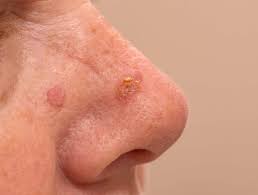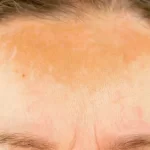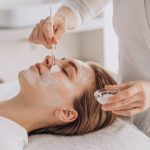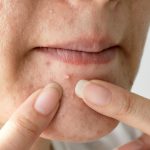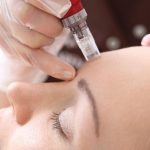Approximately 58M Americans have actinic keratoses, making actinic keratosis a widespread precancerous skin disorder. While actinic keratosis has a minimal risk of developing into skin cancer, it can be a precursor to cancer or the early phase of skin cancer. More precisely, actinic keratosis could develop into squamous cell carcinoma. Contact LUX Dermatology if you suspect you could be at risk of actinic keratosis or have started identifying some of the warning signs. Meanwhile, here is all you should know about actinic keratosis Santa Barbara.
What Exactly Is Actinic Keratosis?
Actinic keratosis is a skin condition characterized by red, dry, and scaly spots. Often, this condition results from years of unprotected sunlight exposure or tanning bed use. With time, the intense Ultraviolet light exposure causes damage to skin cells referred to as keratinocytes that are located in the skin’s outermost layer (epidermis).
What Are The Common Signs And Symptoms Of Actinic Keratosis?
Actinic keratosis usually manifests first as rough, raised pimples on the skin. These bumps could be any color but typically have a brown or yellow crust. Occasionally, the lumps could also be pink, red, gray, or the same hue as your skin tone.
Additional symptoms might include:
- Scaly, parched lips
- Itching, burning or stinging
- Hornlike skin developments
- Loss of lip pigmentation
- Bleeding
- Tenderness or discomfort
How To Avoid Active Keratosis?
Although there is no foolproof way to avoid the development of actinic keratosis, there are measures you may do to dramatically minimize your risk. These techniques include applying sunscreen daily and shielding your skin from sunlight with appropriate clothing such as long pants and/or wide-brimmed hats. Moreover, you should minimize sunlight exposure throughout peak hours (around midday) and minimize tanning bed use.
What To Expect With Actinic Keratosis Diagnosis?
Suppose you have lately noticed a dry, scaly skin area or a flaky, rough region that does not fade away despite how frequently you moisturize. In that case, you should consider visiting a dermatologist. Your dermatologist will begin your diagnosis with a comprehensive skin assessment.
Considering that actinic keratosis is among the most widespread skin concerns, dermatologists can often recognize and diagnose it by observing the affected region. Nevertheless, not all cases are that straightforward. If you have any doubts, they might perform additional testing, like a skin biopsy.
What Are The Treatment Options For Actinic Keratosis?
There are numerous treatment options for actinic keratosis. Your specialist will select your optimal care option as per your unique condition. Some factors that will influence the choice of therapy include the development of your actinic keratoses and the regions affected. Moreover, your doctor will check how serious your condition is, your history of skin cancer, and other health problems you might have.
Here are some of the most effective care solutions available at LUX Dermatology:
- Topicals: Gels, creams, and other topical solutions can efficiently address actinic keratoses. These products are directly rubbed on the skin for different durations.
- Cryosurgery: This procedure utilizes a solution or medical instrument to freeze the afflicted skin. Typically, this solution consists of liquid nitrogen.
- Photo Dynamic Therapy: This treatment employs light therapy to actinic keratosis cells.
Do not overlook any warning signs of actinic keratosis. This condition generally indicates that our skin has suffered extensive sunlight damage. As such, you could be at high risk of skin cancer. The specialists at LUX Dermatology are knowledgeable in all skin conditions and will suggest the most appropriate care for your unique condition. Call the office near you or book an appointment online to explore your care options.

